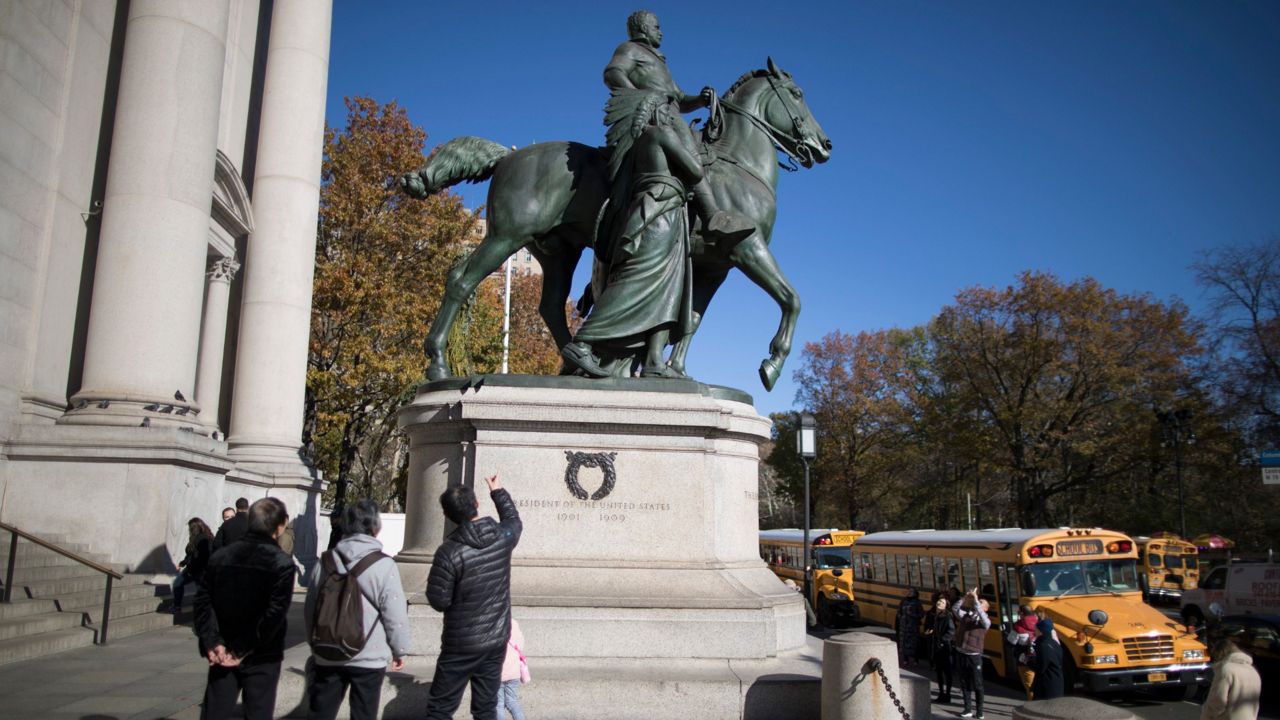On Sunday, the American Museum of Natural History officially requested that the long-controversial statue of former President Theodore Roosevelt, flanked by a Native American man and an African man, be removed from the main entrance of the building.
The city confirmed Sunday that it will work with the museum to remove the statue.
"The American Museum of Natural History has asked to remove the Theodore Roosevelt statue because it explicitly depicts Black and Indigenous people as subjugated and racially inferior,” a statement from Mayor de Blasio reads. “The City supports the Museum's request. It is the right decision and the right time to remove this problematic statue."
For years, the memorial prompted objections from many who saw the statue as a symbol of colonialism.
New demands to take down the Roosevelt statue came amid a wide examination of racism in America after a black man, George Floyd, was killed by a white police officer in Minneapolis.
Weeks ago, as protests swept across the city, NYPD officers guarded the statute from vandalism. On June 5, the NYPD said someone threw paint on the statue.
In a tweet three days later, an activist group, Decolonize This Place, suggested that if de Blasio did not remove the monument, it would be forcibly taken down.
"They are out of touch with the moment and they underestimate people's resolve,” said Marz Saffore, an organizer with group. “One way or another, this monument must go. It's only a matter of time and the clock is ticking."
The statute was dedicated in 1940 to honor the former president, a conservationist whose father founded the Natural History Museum.
However, a growing number of people believe the monument communicates a racial hierarchy that Roosevelt was known to uphold.
"It's a white supremacist statue that glorifies patriarchy, hierarchy and empire,” said Saffore.
"This isn't the first time the statue has been under public scrutiny ... In fact, the museum itself has taken steps to highlight it's problematic history."
The statue was vandalized in 2017, following the demonstration by white supremacists in Charlottesville, Virginia. The mayor subsequently established a commission to evaluate controversial monuments like it around the city, including the Christopher Columbus monument in Columbus Circle.
The commission voted to leave them in place at the time, but to add more information about them.
In 2019, the museum opened an exhibit titled "Addressing the Statue" to contextualize the statue.



